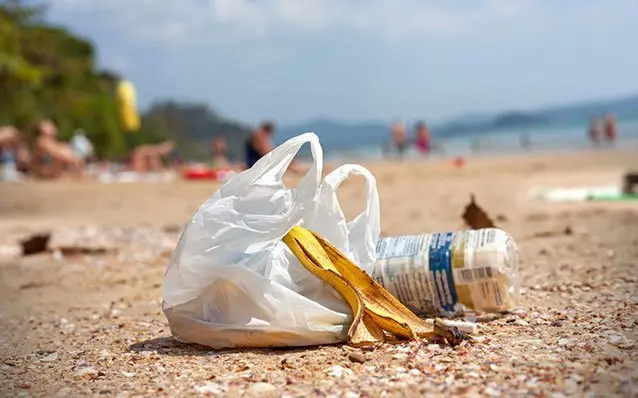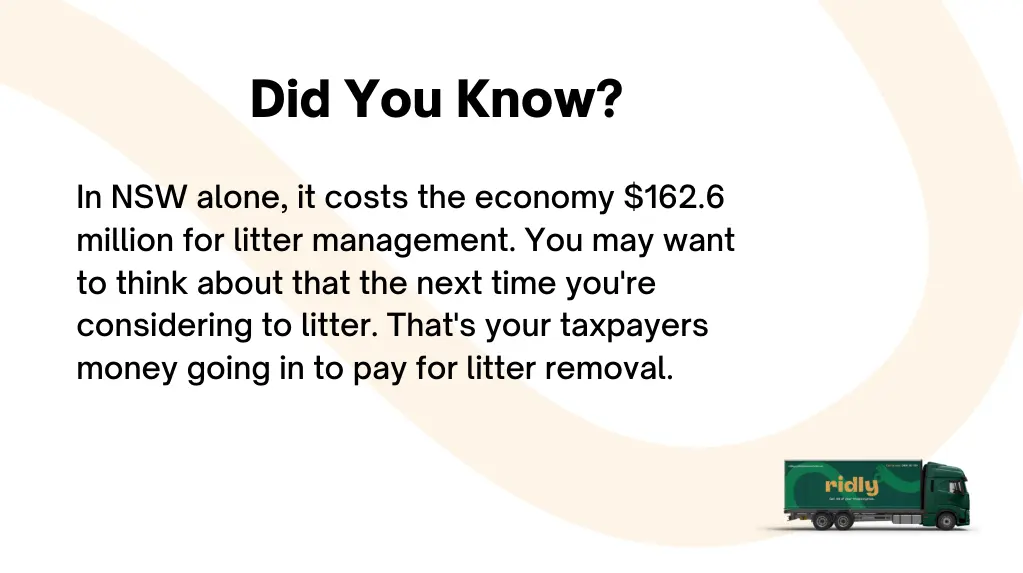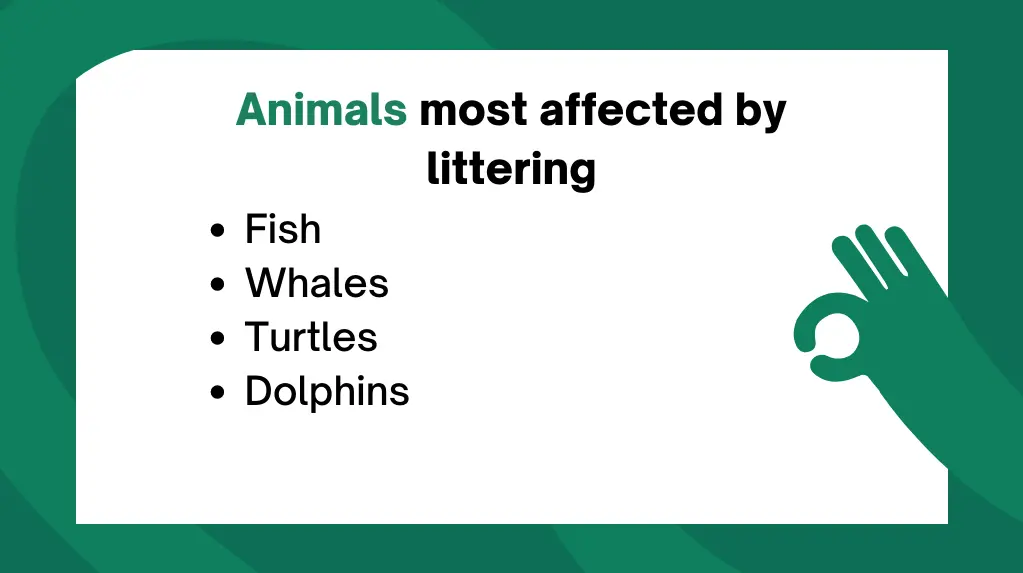
Each year, people around the world litter more than 7.5million tons of waste. As a society, we are slowly cleaning up our act when it comes to littering and responsible disposal of waste products – but we still have a long way to go.
Before we jump into the article, it’s important that we establish what littering is and how it is different from disposing of waste. Littering is the unlawful or illegal disposal of any type of waste material that is less than 200-litres in volume. Items that are greater than 200-litres in volume are considered a separate, criminal offence that are punishable by a different set of laws and regulations (depending on the state that you live in).
Some of the most common items that are littered in Australia include:
· Drink bottles
· Food scraps
· Green waste
· Fishing goods
· Balloons
· Cigarette buds
· Food packaging
Littering doesn’t just refer to the act of throwing something on the ground or out of the window of a vehicle. There are many different forms of littering including:
· Leaving behind items at a venue or on public transport
· Releasing items into the air – such as balloons or other inflatables
· Placing items on top of an overflowing bin
· Throwing items into a bin that is not yours or for public use
It’s important to understand that littering comes in a wide variety of shapes and sizes. From simple acts such as contributing to an overflowing garbage can or throwing natural waste into bushland, you are contributing to Australia’s littering epidemic.
So, without further ado – here are the facts:
9 littering facts that you should be aware of in 2022
1. Littering is a form of pollution
It may seem simple, but littering isn’t just an inconvenience to the council workers or locals who have to clean it up – it’s also a form of pollution. Litter ends up in our drains, oceans, and waterways and is a contributing factor our worsening global environment. Before you dumplitter in the streets or throw and apple core out of your window, it’s important to consider the environmental impact.

2. Littering is expensive to clean up
Littering isn’t only an eyesore, it’s also a serious expense to clean up. It costs taxpayers millions of dollars each year to pay for litter removal and prevention programs in local areas. Reducing litter can help to actively reduce the amount of money that you pay in tax and reduce reliance on third party cleaning services in your local area.
3. Littering is illegal
Littering isn't just a moral issue - it's also illegal in Australia and can result in on-the-spot fines or court appearances. Australia has a littering problem. In fact, the latest data reveals that an estimated 35%of Australians admitting to littering in the past year.
If you see someone littering, you can report them to your local council or "author"ities. In most states and territories around Australia,littering is an offence that can result in an on-the-spot fine or court appearance. The maximum penalty be as high as $5,000 depending on the state or territory that you live in.
4. Litter takes years to decompose
Littering isn’t just an issue today – it’s an issue that can stick around for years to come. It’s a problem for the environment and something that we can all do to help fix. Littering clogs storm drains and pollutes our waterways which can contribute to flash flooding – an issue that has been present in Australia for the last few years.
5. Litter attracts pests & unwanted nasties
You know who loves litter? Pests. Litter can attract unwanted guests including rats, mice, cockroaches, and even mosquitoes – all of which can spread disease and cause other problems in your home or business.
Rodents are attracted to the food that is found in litter such as wrappers and fast-food containers. They will also nestle in piles of paper and other materials to find shelter and cover from the weather. Cockroaches love food and shelter, which means that they are usually found in litter.
6. Litter can damage vehicles
Love your car? Well, time to consider the impact that it has on your vehicle. Small pieces of litter can become lodged in the nooks and crannies of your car, causing scratches and other damage, while larger pieces of litter can even cause dents or break windows.
Before you toss a wrapper out the window, think twice – itcould end up costing you a lot more than just a fine.

7. Litter harms animals
If you love animals, you shouldn’t litter – it’s that simple. Litter can be harmful to animals for a number of reasons including:
· They may ingest litter causing them to choke or block their digestive system
· Litter can cut or scratch animals which can lead to infection and costly vet bills
· Litter is a breeding ground for bacteria and parasites – which can become extremely harmful when sniffed or ingested.
All of these problems can have serious, lasting effects on animals which is why it is so important to properly dispose of our trash.
8. Litter contributes to climate change
Litter is not only unsightly and harmful for our localenvironment, but it can also have far-reaching effects on our global environment by contributing to climate change. According to the latest research out of the United States from the National Resources Defence Council, litter across the USA creates over 100-million metric tons of carbon dioxide waste each year – or the equivalent of 10-million cars on the road.
To help reduce the negative impacts of litter, everyone can do their part by properly disposing of trash and recycling. You can also get involved in local clean-up efforts or support local organisations that are working to reduce litter. Together, we can make a difference!
Final Thoughts
Littering is a serious global problem with far-reaching consequences on our personal health and environment. Happily, we can all be part of the solution by properly disposing of our own personal litter and picking up litter when you see it. You can also encourage peers and community members to do the same by raising awareness about the issue or setting up a clean-up initiative in your area.
By being aware of these littering facts, you can help to bea part of the solution and reduce littering in Australia. To learn more about Ridly’s effort to reduce litter and landfill contribution, get in touch with our friendly team today.